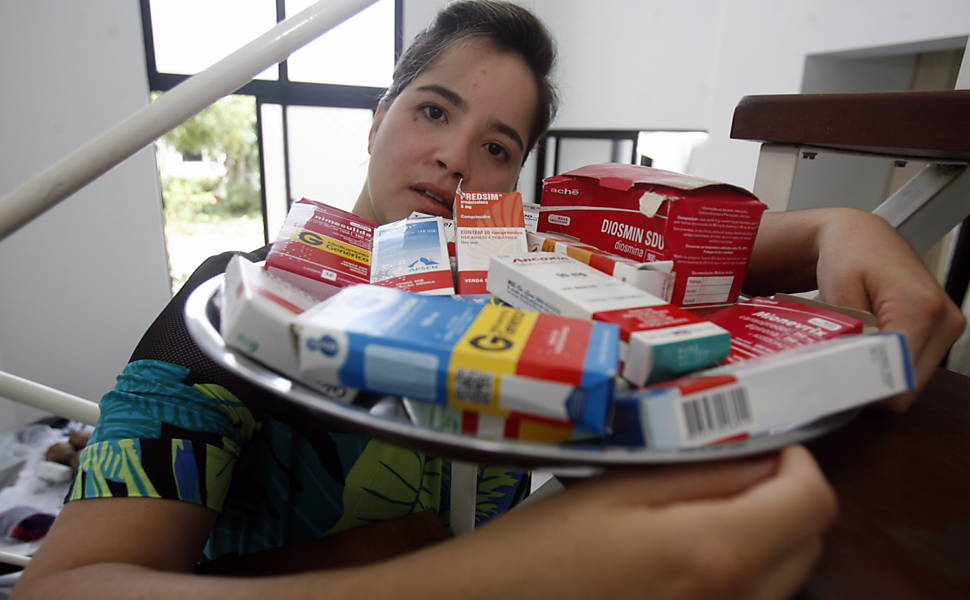Latest Photo Galleries
Brazilian Markets
17h36 Bovespa |
-0,07% | 124.646 |
16h43 Gold |
0,00% | 117 |
17h00 Dollar |
+0,29% | 5,1640 |
16h30 Euro |
+0,49% | 2,65250 |
ADVERTISING
Chikungunya, Like Dengue, Leaves a Trail of Victims in Chronic Conditions
03/07/2016 - 10h36
Advertising
CLÁUDIA COLLUCCI
FROM SÃO PAULO
It has been nine months since bank manager Dannylle Campelo, 32, started to have problems to hold her one-year old daughter or give her first-born child, aged four, a bath.
She also has trouble putting on her ballet slippers or drying her hair by herself.
Auxiliary nurse Marlúcia de Sandes, 37, needs help to get dressed. Raising her arms has become nearly impossible. She has recently suffered three cuts in her hands because she did not have enough strength or sensitivity.
Street vendor Maria Lúcia Santos Silva, 41, has lost customers because she cannot cut the chicken she sells into pieces because of the pain she feels in her hands and the loss of strength in them.
Eighteen months after the first chikungunya fever epidemics in Brazil, many patients in Feira de Santana (BA) still have strong pain, difficulty to move and deformations in the articulations of their feet, hands, ankles and knees.
Chikungunya is also transmitted by the Aedes aegypti mosquito, like dengue and zika, and it has left a trail of victims in chronic conditions.
"The disease has been considered the third least important, but it causes some very serious trouble. Many people have been coming and going to clinics and first aid posts," says infectologist David Uip, the state health secretary of São Paulo.
One third of those infected in Feira de Santana are already in chronic conditions. They have suffered for more than six months from problems such as arthritis (inflammations in joints) and arthrosis (wear and tear of the cartilage that covers the ends of bones and damages articulations). Patients often become depressed.
In Brazil, 13 states and the federal district have locally contracted cases of chikungunya. There were nearly 27,000 cases registered in 2015, 24,600 of them in the Northeast - Bahia leads the ranking with 18,154 cases, according to the Ministry of Health.
The state of São Paulo registered 133 cases originating from other states last year. In 2016, two locally contracted cases were registered in São Paulo city.
"Chikungunya is not as mild as people think. It seems to have become more and more severe with every epidemic," says rheumatologist Morton Scheinberg, an associate professor of immunology at USP.
In its acute phase, the virus causes fever, pain in articulations and skin spots. The symptoms usually disappear in two or three weeks, but they could last months or even years in some patients.
Translated by THOMAS MUELLO




